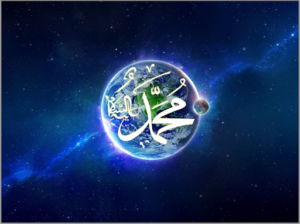Words and Reflections – Hazrat Moulana Mohammad Ilyas – رحمه الله – Part 11 – 20
![]()
Moulana Mohammad Ilyas رحمه الله Words and reflections
Part 11-20
11
Hazrat Maulana رحمه الله said:
“People regarded as loyal supporters of the government are, in fact, not loyal to anyone; they are loyal only to their interests. Since their selfish interests are being satisfied thanks to the present government today, they are supporting her. But tomorrow if their interests were to be served by those in the opposition, they will start singing their praises and will become equally loyal supporters of theirs. Such worshippers of the self-interests are, in fact, not faithful even to their fathers [because their associations alter from one day to the other]. The way to reform these people is not this that we should condemn them, or prepare them for opposing the government. Their real disease is their worship of desires, and so long as this disease remains in them, even if they give up their support for the government, they will become equally loyal to some other powers for satisfying their desires. Therefore, the work which must be done is: cultivating in them the worship of Allah, in place of the worship of desires, and making them faithful supporters of Allah and of His deen. Without this, their disease is not going to be cured.”
12
Hazrat Maulana رحمه الله said:
“This is a principle that man finds satisfaction in gaining what he likes and wishes for. For instance, a person who loves luxurious living, eats costly food and wears expensive clothes, will not find comfort and ease without these luxuries; whereas the person who loves sitting on a mat, sleeping on the ground, wearing simple clothes and eating simple food, will obviously feel delight in these things. Blessed are they who love simple living in following the Holy Prophet’s (Sallallahu Alayhi wasallam) example, because their peace of mind is in the inexpensive living- the means that are within the reach of both rich and poor. [This is indeed a big gift and great favour of Allah that one finds comfort and ease in simple and inexpensive means.] If our desires were bound with the things that only the rich can afford, we might have remained uneasy throughout our lives.”
13
Hazrat Maulana رحمه الله said:
“We have been commanded to spend on others out of what we have been given in this world; that is, we should not stop what we have been given, but should remain spending on others- but on condition that this spending should be proper and in the right places, according to the discipline and within limits set by Allah,-and should not be in an inappropriate manner or on unnecessary things.”
14
One day, probably due to rain, meat could not be obtained for the guests of Hazrat Maulana. On that day, a respectable person (who was a close relative of Hazrat Maulana) whose fondness for meat was well known to him was among the guests. I (the compiler) was also present:
To my surprise, the absence of meat from the meal greatly bothered Hazrat Maulana. After a while, he said with sorry feelings:
“It is narrated in the Hadeeth that: ‘The one who believes In Allah and the Last Day, should honour his guest. It is included in honouring the guest that, if possible, he should be provided with what he likes.”
Afterwards, Hazrat Maulana رحمه الله said in a pain-worn voice:
“How one can at all do honour to the guest of Allah and the guest of the Holy Prophet Sallallahu alayhi wasallam?”
(By this, he meant that those who pay a visit for the cause of Allah and the Holy Prophet Sallallahu alayhi wasallam, their rights are greater than the rights of the common visitors.)
15
Hazrat Maulana رحمه الله said:
“Paradise is the return of [fulfilling others] rights. That is, letting go our own rights, our own comfort and our own ease for the sake of Allah,-and fulfilling others’ rights bearing troubles on our self (which includes the rights of AlIah as well). Paradise is the sole reward of such deeds.”
Hazrat Maulana further said:
“It is reported in a Hadeeth: Have mercy upon those on earth; the One in the skies will have mercy upon you. Two well-known incidents of two women are reported in the Hadeeth. First, that of a sin-laden and immodest woman who, taking pity, drew water for a thirsty dog from a well. In its return, Allah decided her entering into paradise. The other woman (who was .not sinful) kept a hungry cat imprisoned so that it died in great distress; because of this deed she was sentenced to hell.”
16
Hazrat Maulana رحمه الله said:
“The style of working of the Holy Prophet Sallallahu alayhi wasallam in Makkah (before the Hijrat), i.e., calling people to the good and meeting people in person for this purpose, seems to have changed after reaching Madinah- because there he himself sat in a centre. However, he did so after having prepared a particular jama’at of his responsible companions who had fully and efficiently carried out with the work of da’wat in the Makkan-order of working. After that, it became the need of this work that the Holy Prophet Sallallahu alayhi wasallam should himself sit in the centre and manage its activities in a systematic way, and take work from the companions. ”
“Likewise, the stay of Hazrat Umar Radiallahu Anhu in the centre, Madinah, became justifiable only when thousands of Allah’s bondsmen were available for jihad so as to elevate the Word of Allah in the lands of Iran and Rome. It then became the need of the hour that Hazrat Umar Radiallahu Anhu should himself sit in Madinah and firmly organise the work of da ‘wat and jihad.”
17
Hazrat Maulana رحمه الله said:
“A Hadeeth reports that the Holy Prophet Sallallahu alayhi wasallam taught Hazrat Abu Bakr Siddiq Radiallahu Anhu to beg the following du ‘aa after completing his salaat:
O Allah! I have wronged myself a great error, and there is none to forgive sins except you. So, forgive me by Your Grace and have mercy upon me, for verily, you are the Oft forgiving, Most Merciful.
Think for a while! The Holy Prophet Sallallahu alayhi wasallam is teaching this du ‘aa to Hazrat Abu Bakr Siddiq Siddiq Radiallahu Anhu, who is the best and most perfect of the whole Ummat, and whose salaat was so perfect in the sight of the Holy Prophet Sallallahu alayhi wasallam that he himself made him imam in the salaat [during his lifetime]- yet he is teaching him to beg this du ‘aa at the end of his salaat- that he should admit before Allah that he has remained weak in fulfilling the due of worship, and should beg forgiveness through His kindness and mercy! So, where do you and I stand?!”
18
Hazrat Maulana رحمه الله said:
“Man’s stay on earth is very short (i.e., not longer than the longest human life-span), whereas he will have to stay for much longer time below the earth. You may also put it this way that your earthly life is very short compared to the various places you are to stay afterwards. For example, in the grave up to the 1st sounding of the trumpet; after that, the period up to the 2nd sounding of the trumpet in a state best known to Allah alone (a span spreading for thousands of years); then thousands of years duration in the Plane on the Day of Judgement- and then, whatever be the divine decision about one’s final place in the hereafter. In short, every stage and place after death is thousands of life spans. Even then, how sad is the negligence of man that he does not make even that effort for those places which he does for his very short span of earthly life.”
19
Hazrat Maulana رحمه الله said:
“The true zikr of Allah is that: in whichever place and in whatever condition and engagement a person is, he must obey all of Allah’s commands that are relevant to that particular occasion. I press my friends more for this very zikr.”
20
Hazrat Maulana رحمه الله said:
“The tongue receives a special share in man’s mastery over the entire creation. So, if a man uses his tongue only for good speech, this will give him mastery in goodness. But if he has made his tongue an instrument of evil, for example, he uses foul language or unjustly harms others by speaking ill, then he will be distinguished in evil on account of the ill use of his tongue. Nor is this all, an evil tongue can sometimes make a man more evil than even dogs and pigs. A Hadeeth says: It is only the chatter of the tongue that throws people headlong into the fire.” O Allah save us.



